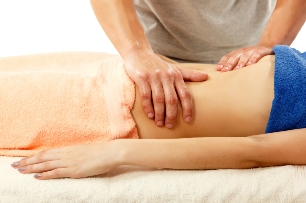MOBILE MASSAGE SERVICES

Most of us instinctively believe that many of our postural problems are associated with muscle tightness on the back surface of our body, our back muscles, the muscles between the shoulder blades and at the back of the neck, for example. If we have a headache then we rub the back of our neck. If our lower back is stiff and sore then it seems sensible to believe that the problem may very well be associated with the muscles of the lower back.
However, many postural dysfunctions are actually the result of excessive stress in the front of our body. Our lifestyles can be considered as being very forward living as virtually all of our daily activities are carried out with a forward posture. Sitting, working on computers and driving, for example, are all activities that bring our bodies forward and create muscular tension stress patterns in front of the body which can then be associated with weakness in some posterior muscles.
For people who have a forward head posture then their pectoral muscles are often hypertonic and the rhomboids, which are antagonist muscles, are weak and usually overstretched (antagonist muscles are muscles that directly oppose the action of others). Similarly abdominal muscles such as the rectus abdominus can be overly tight from extended periods of sitting and their antagonist muscles, the erector spinae group, are similarly weak. No amount of stretching the weak muscles either through active stretching or by your massage therapist working in a manner to lengthen weak muscles will provide any help to poor posture.

Abdominal massage can often be overlooked for people as an effective therapy for people who are suffering from lower back pain. Also effective deep tissue bodywork techniques applied to the diaphragm can improve breathing and chest tightness by, in effect, lifting the ribcage and raising the shoulders. There are also some studies that indicate that stomach massage can also aid the digestive system.
Many Sydney massage therapists do not offer abdominal or stomach massage. It is a personal area to expose and have touched by a stranger and the therapists can feel uncomfortable about contacting someone's abdomen. Therapists often talk about people protecting themselves with 'body armour', an area of involuntary tension whereby our body suppresses or blocks emotional awareness. The abdomen is one of the foremost areas that people are defensive and protective of. It is not uncommon for people to experience an emotional release when their abdomen is massaged.
Many massage aficionados have had a lot of "full body massages" yet have never been offered an abdominal massage. On request, Richard can provide effective and sensitive abdominal massage. However, please note that abdominal massage is generally not recommended on a full stomach or with a full bladder and there may be contraindications during pregnancy.